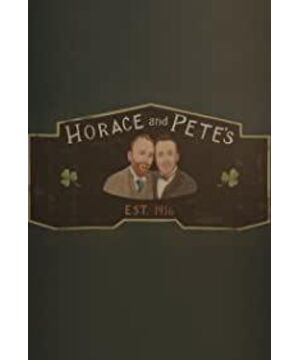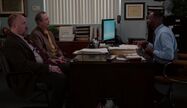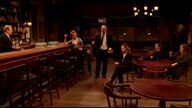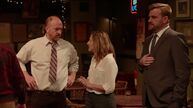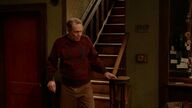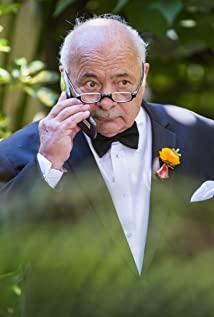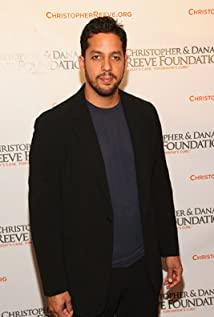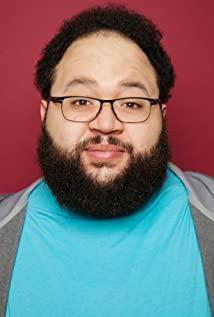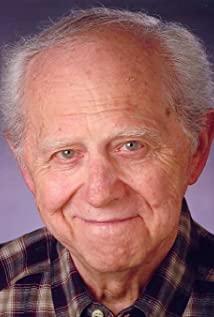First published on the public account: vest cable
Let's talk about the people in this tavern.
First, of course, was Horace.
The Horace in the play is played by Louis CK, one of the owners of the Horace and Pete tavern. To talk about him, we must first talk about his father, also called Horace, who was also played by Louis CK (the film I made myself, save it if you can). At the beginning of the whole play, old Pete said that "the two of them opened this bar to stay away from their daughter-in-law", which seemed to lay the foundation for the family's family atmosphere.
Although there is almost no pen and ink about the old Horace, but in the last episode, there are only a few scenes, either pulling his wife's hair or twisting his son's arm, a downright violent and cruel Horace VII. Horace, who grew up in such a family background, did not develop a violent temper like his father. On the contrary, he grew up to be a moderate, kind, and even an ordinary middle-aged man.
Counseling is counseling since childhood. Under the lewd power of an irritable father and a poisonous uncle, it is basically hopeless to grow into a sunny boy.
Perhaps the most thrilling story in his life is that in his early 20s, he married a wife 11 years older than him, and then his wife and sister-in-law became pregnant at the same time. After that, he lost this pair of sisters and had this pair of sisters. The next pair of children. However, the meaning of having is only blood relationship rather than daily family affection. The son does not contact him at all or even refuses to speak. The fat girl Alice frankly forced herself to communicate with him, and tried not to spit out when she thought of him.
A middle-aged man's ties in family and affection will intensify unconsciously, so he becomes a rambling father trying to please his children. For this reason, he even gave up a good partner who had been promoted to a cohabiting girlfriend, just to let his poisonous-tongued fat girl live at home. As a result, of course, the girlfriend left and the daughter did not appreciate it.
His ex-wife came to him and spent an episode just revealing to him the troubles of cheating with his current father-in-law; he found his former date, but in the end, he just relived the tragic marriage and widowhood with others. Experience; he has more than one fantasies, but the object is his father's lover; his identity as a tavern owner gives him many opportunities to have sex with female guests, but after a pleasure, he invites him to have breakfast with an unexpected surprise. Knowing a transgender...
In short, there seems to be no shining part of his life from childhood to adulthood that can be remembered.
Fortunately, he is still a relatively peaceful person, he does not have any big ambitions, and he shows a state of indifference to his own life and the management of the tavern. Of course, this is not necessarily the state he was in when he was young, but when he entered middle age, his marriage failed, and his life was bleak, he seemed to have become accustomed to accepting the lingering dark cloud above his head.
He seems to be okay with everything. So he quit his job to run the tavern after old Horace passed away, to accept such an ancestral mission, or a burden. However, Sylvia, who grew up in the same environment, is the exact opposite. It may be from the sensitivity of women. Sylvia hates everything this house represents. Therefore, it is to get rid of the dark memories of this family and this house. , to get rid of her own embarrassing life, but also to have cancer and need a lot of money, Sylvia forced Horace to sell the pub and divide the property equally.
From the bottom of his heart, he hopes to maintain this tavern, making money is not his pursuit, nor does he have such a heavy mission of inheritance as his parents, a middle-aged man who does not have too many plans for himself, accepts and maintains the status quo. is the best arrangement. What's more, as the person in this family with relatively normal physical and cognitive abilities, his acceptance and maintenance means ensuring the survival and life of his cousin and uncle. But his sister used the cancer patient's pity card to push him into a dilemma.
He didn't do anything positive to solve such a problem, so when Pete disappeared, I guess he was secretly relieved, and didn't realize it was his responsibility to find Pete until he was reminded slightly reproachfully by an alcoholic. He still loved Pete, and when the police repeatedly used the word gone to remind him of Pete's state, he still couldn't accept it.
Fortunately, the predicament seems to be resolved, and Sylvia is also planning to leave here. Horace no longer needs to force herself or make a choice for these relatives.
The woman who came to the interview rekindled Horace with unwarranted optimism and babble, and the American she played on the jukebox almost lit up Horace's path at that moment, and he could pack light on looking for America, go Find what you want.
The play directed by Louis CK will definitely not have such a happy ending, right? Horace was stabbed for the sake of conflict and climax. The plot has worked well here, but I have to explain that it was the knife that cut lemons. The thorn is like a god's knife: this store originally didn't sell mixed liquor or cocktails, hey, cut a lemon...
The most ironic part is at the end, the son who has been refusing to see him and talk to him comes to the pub after his death and asks about his father, Sylvia tells him: nothing special, neither particularly interesting or smart or kind, an ordinary man.
Yes, Horace is such an ordinary man, in terms of blood, he is not as good as old Pete; in terms of kindness and intelligence, he is not as good as Pete; in terms of decisiveness, he is not even as good as Sylvia.
He is a middle-aged waste with no ambition and no ambition, with piles of embarrassment. But isn't that like ourselves? Cowardly, hesitant, and without ambition, stumbling forward in life. His fault is the fault of many of us, and his predicament is the predicament of many of us.
With such a vicious tongue at home, he was choked up many times. But I think his most awesome time was when he said to Sylvia, does everything have to be about profit? Is making money the only purpose? Can't you just open a bar quietly, just a place where people drink and chat? He also said it when they were drinking after old Pete's funeral: I don't want to close this place because that's worse than surviving.
Really, I think such Horace is super handsome, but unfortunately, only so handsome.
View more about Horace and Pete reviews


